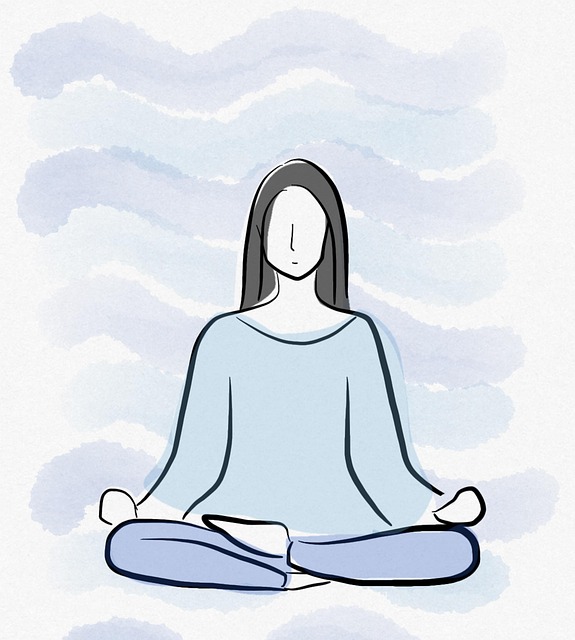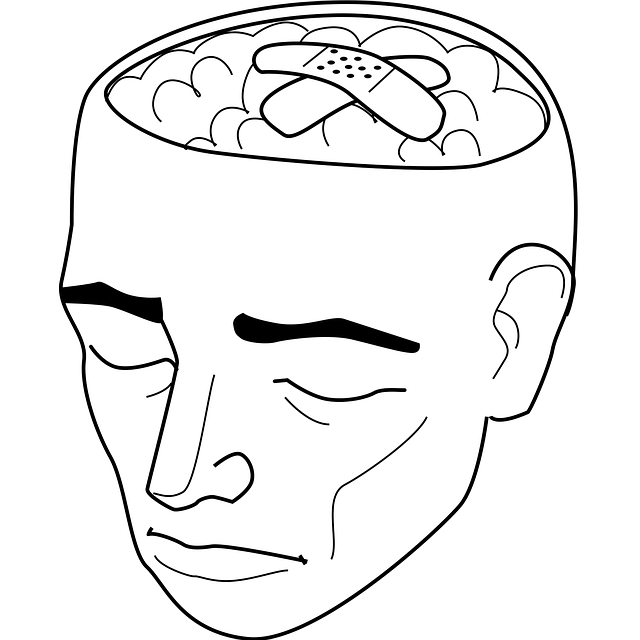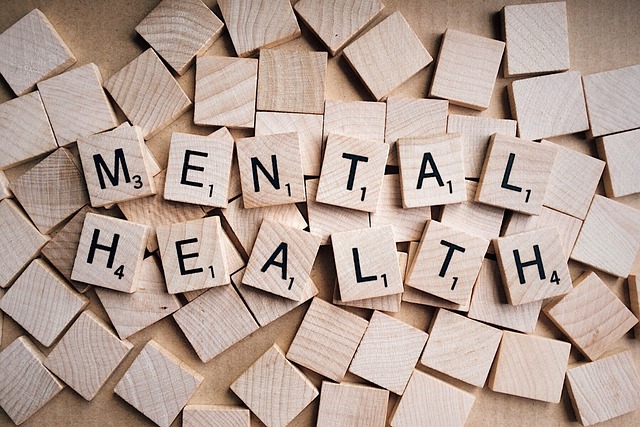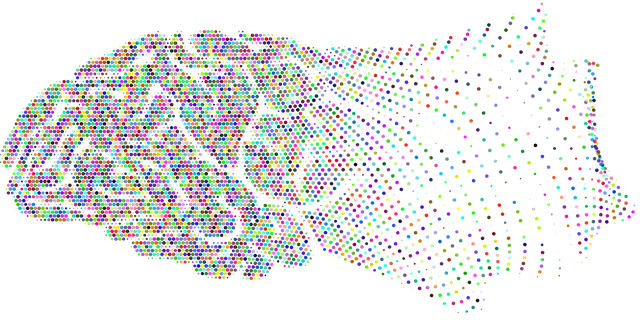Holistic mental health is an integrated approach that recognizes the deep connection between mind, body, and spirit, aiming to enhance overall well-being. It incorporates diverse techniques like meditation, yoga, CBT, and expressive therapies to address psychological, physical, and spiritual aspects. By challenging traditional boundaries, this method empowers individuals to manage stress, boost resilience, foster self-awareness, and cultivate a deeper connection with themselves and their surroundings, achieving balance and harmony. Integrative therapies combine various modalities to treat the whole person, while adopting a holistic lifestyle through activity, mindfulness, nutrition, and social connections supports long-term mental health.
In today’s fast-paced world, prioritizing holistic mental health is more crucial than ever. This comprehensive guide explores mind-body-spirit therapy approaches, offering a holistic perspective on mental well-being. From understanding the foundations of holistic mental health to delving into specific techniques like mind therapy, body-mind connection practices, and spirit-based interventions, we provide insights for navigating life’s challenges. Discover how integrative therapies and cultivating a holistic lifestyle can lead to long-term mental resilience and balance.
Understanding Holistic Mental Health: A Comprehensive Approach

Holistic mental health is an approach that views the mind, body, and spirit as interconnected parts of a single system, rather than separate entities. This comprehensive view recognizes that psychological well-being is intricately linked to physical health and spiritual fulfillment. By addressing all three dimensions simultaneously, holistic therapy aims to achieve a state of balance and harmony within an individual. It involves various techniques such as meditation, mindfulness, yoga, nutrition counseling, and energy healing, tailored to nurture and support each person’s unique needs.
This integrated approach challenges the traditional separation between mental and physical health, positing that ignoring one aspect can negatively impact the others. By embracing holistic mental health, individuals can experience profound improvements in their overall well-being, fostering resilience, self-awareness, and a deeper sense of connection to themselves and their surroundings.
Mind Therapy: Techniques for Mental Well-being

Mind therapy, a cornerstone of holistic mental health approaches, offers a plethora of techniques tailored to cultivate mental well-being. These methods range from cognitive behavioral therapy (CBT), which helps individuals identify and modify negative thought patterns, to mindfulness practices such as meditation and deep breathing exercises. These practices have been shown to reduce stress, enhance focus, and improve overall mood.
Additionally, expressive therapies like art therapy and music therapy provide unique avenues for emotional release and self-discovery. By engaging in creative processes, individuals can explore and process complex emotions, fostering a deeper connection with their inner selves. This holistic approach to mental health acknowledges the intricate interplay between mind, body, and spirit, aiming to nurture overall well-being through comprehensive therapeutic interventions.
Body-Mind Connection: The Role of Physical Practice

The mind and body are intricately connected, and physical practice is a powerful tool in holistic mental health therapy. Yoga, for instance, has long been recognized as a holistic approach, combining physical postures (asana), breathing techniques (pranayama), and meditation to promote well-being. These practices not only strengthen the body but also calm the mind, reducing stress and anxiety. The focus on mindfulness during movement helps individuals cultivate awareness of their thoughts and emotions, fostering a deeper sense of self-awareness and emotional regulation.
By engaging in regular physical activity, such as tai chi or qigong, individuals can enhance their mind-body connection, leading to improved mental clarity and emotional balance. These ancient practices emphasize the flow of energy (chi or prana) throughout the body, promoting harmony between the physical and subtle energetic systems. The result is a holistic healing experience that addresses both the mental and spiritual aspects of one’s being, contributing to overall well-being and resilience.
Spirit-Based Practices for Emotional Balance

In the pursuit of holistic mental health, spirit-based practices play a pivotal role in achieving emotional balance and well-being. These ancient approaches, rooted in various cultural traditions, recognize the intrinsic connection between our spiritual essence and mental state. Through rituals, meditation, and mindfulness practices, individuals can tap into their inner wisdom and cultivate a deeper sense of purpose. Such practices often involve connecting with nature, engaging in prayer or contemplation, and exploring spiritual communities for support and guidance.
By incorporating spirit-based practices into their therapy regimens, individuals can experience a profound sense of healing and transformation. These methods foster self-awareness, encourage personal growth, and promote resilience. Many find that spiritual routines provide a sanctuary from the chaos of daily life, offering moments of tranquility and inner peace. This holistic approach to mental health acknowledges that emotional well-being is not solely dependent on external factors but is deeply intertwined with our spiritual connections and beliefs.
Integrative Therapies: Combining Methods for Optimal Results

In the realm of holistic mental health, integrative therapies emerge as a powerful approach, combining various treatment methods to achieve optimal results. This multifaceted strategy acknowledges the interconnectedness of the mind, body, and spirit, understanding that each component influences the others. By fusing different therapeutic techniques, such as cognitive behavioral therapy (CBT), mindfulness practices, energy healing, and meditation, practitioners aim to address the individual as a whole.
This holistic perspective believes that physical symptoms often mirror emotional or spiritual distress, and vice versa. Integrative therapies strive to uncover these underlying connections, fostering a sense of balance and harmony. For instance, combining CBT with mindfulness can enhance one’s ability to manage stress and anxiety while exploring spiritual practices may provide deeper insights into personal growth and meaning. Such an integrative approach empowers individuals to take control of their mental well-being by harnessing the power of diverse therapeutic modalities.
Cultivating a Holistic Lifestyle for Long-term Mental Health

Adopting a holistic lifestyle is an essential aspect of nurturing long-term mental health. This approach recognizes the interconnectedness of the mind, body, and spirit, understanding that overall well-being cannot be achieved in isolation. By integrating various dimensions into daily routines, individuals can foster resilience and promote a sense of balance. Engaging in regular physical activity, for instance, not only strengthens the body but also releases endorphins that boost mood and reduce stress. Simultaneously, practices like mindfulness meditation or yoga encourage mental clarity and emotional regulation.
Nutrition plays a significant role too, as a balanced diet provides the necessary fuel for optimal brain function. Additionally, connecting with nature, whether through walks in parks or gardening, offers tranquility and a sense of grounding. Cultural and social connections are also vital; building relationships and participating in communities foster a sense of belonging and support, all contributing to enhanced mental health. These holistic practices create a supportive environment, enabling individuals to navigate life’s challenges more effectively and promote overall resilience.
